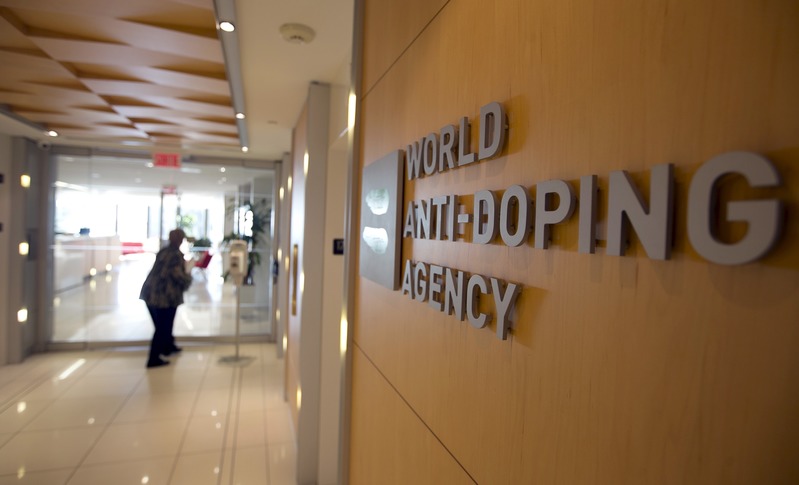By Steve Keating
MONTREAL (Reuters) – For 13 winters it has been a thick jacket and heat of the battle that have provided warmth for David Howman, the World Anti-Doping Agency’s director general, who has been a right-hand man for every WADA president.
The one constant in a sometimes fractured anti-doping movement, Howman does not measure his time at WADA in victories and defeats, success and failures, or even weeks and years.
For the long-serving director general, who will turn his downtown Montreal corner office packed with sporting memorabilia over to Olivier Niggli later this month, it is the harsh Canadian winters the affable New Zealander has used to mark time.
“The brutality of the winter sometimes gets me really depressed,” smiled Howman, gazing out on a snowless vista. “I’ve never been dissatisfied with anything I have done in my life but I am highly satisfied with what I have been able to achieve here.”
A lawyer by trade, Howman has been on the frontlines of the war against performance-enhancing drugs almost since the day the International Olympic Committee declared this was a fight that must to be won to protect the integrity of sport.
Over the years there have been chest-thumping victories and demoralising setbacks.
Disgraced cyclist Lance Armstrong and former sprinter Marion Jones are two of the high-profile scalps snared in the anti-doping net but Howman signs off as WADA is on the back foot and world sport is facing an unprecedented drug crisis.
Russia, a sporting superpower, is accused of running a widespread and sophisticated state-sponsored doping programme that may have fuelled their Olympic ambitions for years.
Meldonium is the new drug de jour, frightened whistleblowers are in hiding and WADA is at a crossroads limping along with an annual budget of $30 million, about the same as tennis star Maria Sharapova, currently serving a doping ban, made last year.
“It would be nice to see these things through but you know you have to leave at some stage so you’ve got to be committed to saying, OK it’s time,” Howman told Reuters after his final foundation board meeting on May 12. “I’ve left in place a team that is extremely competent they can take over and do it as well as I could have.”
While others have set the course, Howman has steered the WADA ship through often choppy waters that included three revisions of the WADA Code and a UNESCO treaty.
He has been at the side of three WADA presidents, witnessed seismic shifts in style and subtle changes in direction, creating chaos and repairing damage as called upon.
Howman played the good cop to former WADA president Dick Pound’s bad cop, was at times the agitator for the diplomatic John Fahey and an experienced lieutenant to current chief Sir Craig Reedie.
Loud, brash and at times outrageous, the hard-nosed Pound ran WADA like a tough-talking, no-nonsense sheriff out to rid the town of drug cheats. The soft-spoken Fahey brought diplomacy to the fight, using considerable political skills sharpened by years of service in the Australian parliament, while Reedie has used a little of both playing more of conciliator role.
“You mould your style according the presidential requirements,” said Howman. “I was a lawyer, a barrister who went to court every day. Every judge is different and you adapt your argument according to the judge so it sort of comes naturally.
Howman, who often represented athletes in New Zealand who could not afford his services and paid in cricket bats and All-Blacks rugby jerseys, has been there through all the highs and lows.
When WADA opened in 2003, drugs in sport had already become a worldwide epidemic and fair play was merely a quaint idea.
Doping was firmly entrenched in the sporting culture, largely tolerated, if not tacitly accepted, by those who competed in everything from cycling’s Tour de France to baseball’s World Series.
With no meaningful out-of-competition testing, a mish-mash of sanctions and banned substance lists, entrepreneurs such as BALCO mastermind Victor Conte operated in near impunity, pushing out designer steroids faster than tests could be developed to detect them.
From a small headquarters in Montreal, WADA has grown into a global agency with four regional offices and 35 laboratories, although four are currently under suspension.
“David knew a lot about sports, he had represented both sides of the fence as a barrister in New Zealand,” said Pound. “He’s a huge sports fan. He has a love for it and understands the values that are implicit in it and that makes him a good fit in that role in an organisation that is dedicated to make sure those values continue to be represented.
“There are very few home runs in this business, it’s a game of bunts and singles so you’ve got to keep your head down and keep at it and he is very good at that.”
(Editing by Andrew Both)


